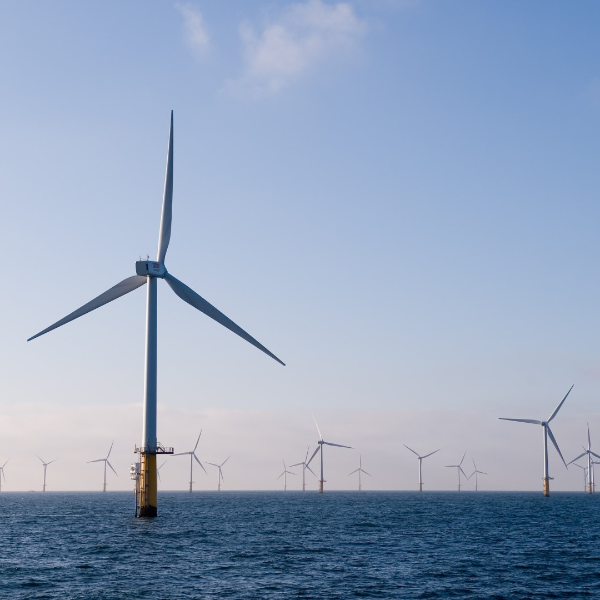Professional standardised data management: Dutch governmental offshore wind ecological programme

Since 2016, the Dutch Governmental Offshore Wind Ecological Programme (Wozep) has carried out structured research on the ecological impact of offshore wind farms under assignment to the Ministry of Economic Affairs and Climate Policy. Wozep focuses on the most significant knowledge gaps surrounding offshore wind farms’ ecological impact. Under assignment to Rijkswaterstaat, Witteveen+Bos is responsible for Wozep’s data management.
The energy transition requires everyone’s combined efforts, with offshore wind energy also having a role to play. Offshore wind farms, however, must not have major negative ecological effects. To be able to estimate what these effects will be before a wind farm’s permit is granted (part of the site selection decision), a lot of information is required. Wozep provides this in various forms, including feasibility studies, international inventories of data and knowledge, model development, and research with field observations. The knowledge thus obtained is valuable input for the design process and for decision-making related to wind farms.
Since November 2019, Witteveen+Bos has been responsible for managing Wozep’s data. The aim of this data management is to make possible and ensure the standardised storage of all data collected within the programme, resulting in transparency regarding available data and stimulating the reuse of data and models.
Data management system
To achieve this we set up a data management system that is accessible to all stakeholders via a web portal. In the accompanying cloud environment, data is obtained, processed and stored, and datasets can be accessed and shared. A standardised data management process was developed to monitor whether a given dataset has been obtained and delivered, stored or accessed. This process is described in a data management plan and follows FAIR data principles, which make data findable, accessible, interoperable and reusable for both humans and computers.
Setting the standard
Kees Borst, Rijkswaterstaat’s lead engineer for data management: ‘At Rijkswaterstaat, a lot of attention is given to data accessibility, transparency and reuse. It’s a difficult challenge making all that marine data both nationally and internationally (e.g. via EMODnet) findable and accessible in a reliable way, and also making it easy to reuse. The marine world is complex and involves all sorts of topics and research efforts that affect one another. The question, then, is: How do we make this accessible to marine research communities? We’ve made real progress in this – for example, our data management approach is now also being used for the MONS programme. With our data management for both Wozep and MONS, we’ve established a professional standard that will also benefit others – now and in the future.’
Data stewardship
Rina Clemens, Witteveen+Bos’s team leader for data analysis and management: ‘For Rijkswaterstaat, our team is implementing data stewardship. This involves continuously monitoring the data management process and providing support where necessary. We ensure that data suppliers and Rijkswaterstaat’s project managers always have an oversight of agreements by recording these in a data management fact sheet and providing follow-up where necessary. The desired end result is that each dataset is sustainably stored and accessible as open data. We’re currently working on making the datasets available within the Wozep and MONS programmes visible so they can be accessed by third parties.’
Wozep’s valuable research findings
Wozep has already provided important insights into the effects of wind farms on birds, bats and marine mammals. Species with protected status directly affected by wind turbines have received special attention.
This includes, for example, birds and bats that are hit by turbines, birds that avoid wind farms, porpoises and seals affected by underwater noise, as well as animals possibly affected by electromagnetic fields around the cables.
Research is also being conducted into the change of habitat wind farms represent for birds and marine mammals. Habitat changes (available amount of food, places to rest, and opportunities to nest for bottom-dwelling animals) can also affect the occurrence and condition of other species.
Finally, Wozep is investigating the possible effects of wind farms on physical processes (such as waves, currents and level of turbidity) in the North Sea. These physical processes underpin the North Sea’s ecosystem and impact on the food web and ultimately on vulnerable species.
